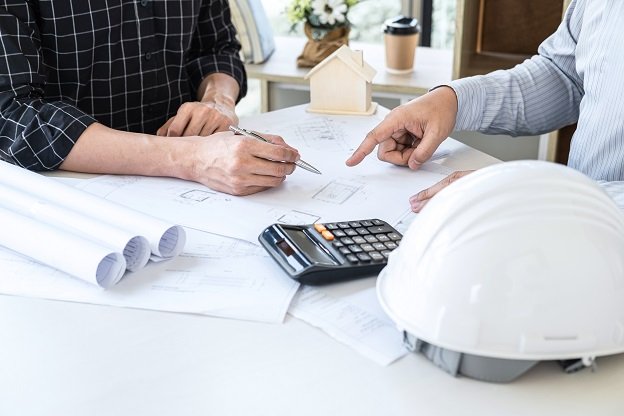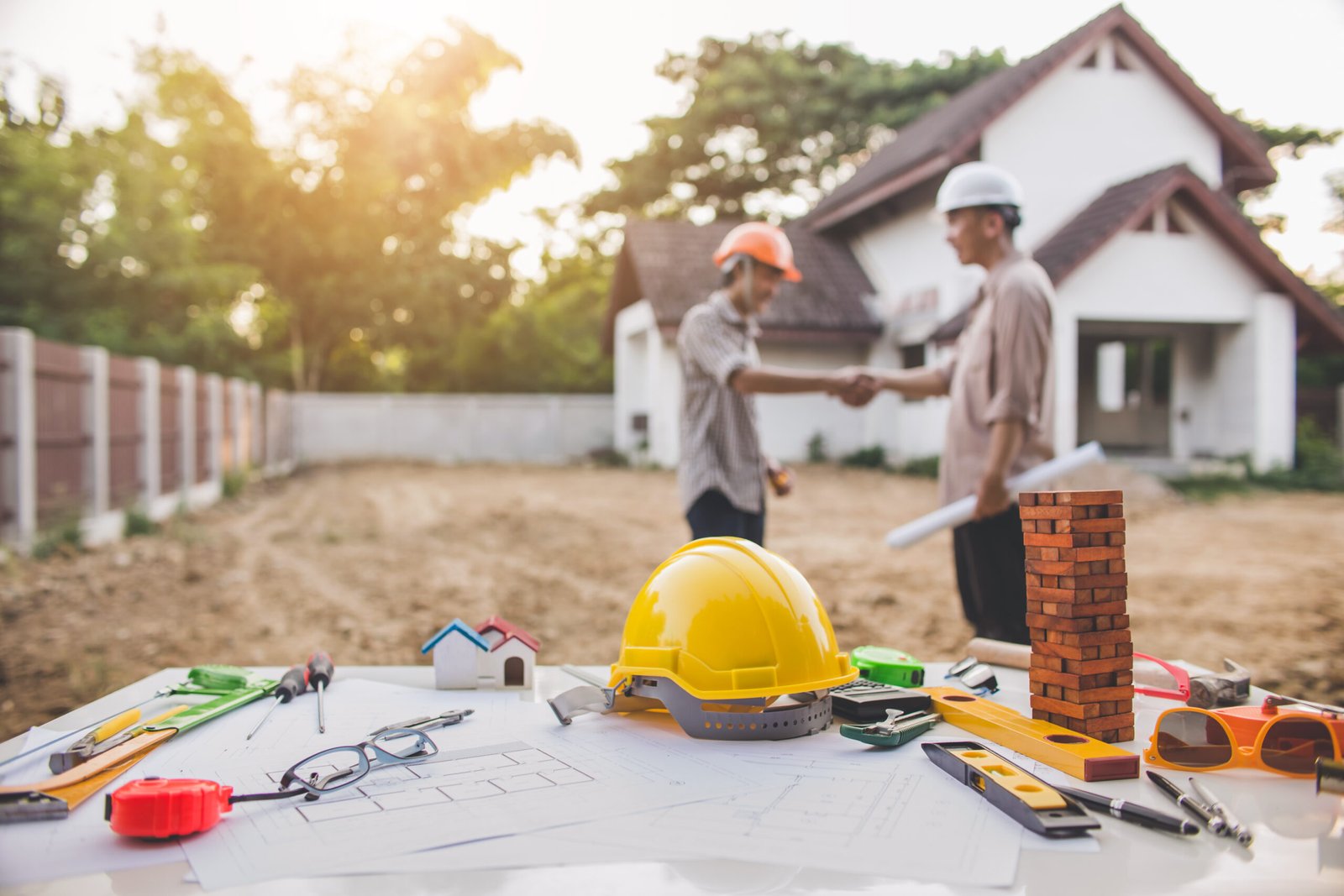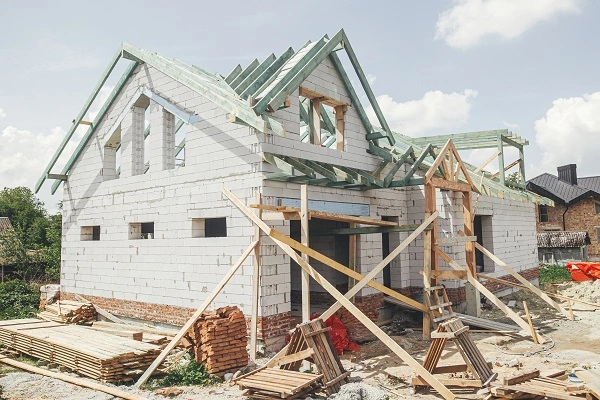Costly settlement solutions exist.
Home buyers looking for their ideal property have seen 30-year fixed mortgage rates spike to an alarmingly high 7.23% this August, as permits for future construction hit an all-time high. Potential buyers have decided that rather than pay exorbitant prices to fulfil the American dream. They should simply build their dream house and achieve exactly what they desire.
But is building worth your effort? This information can help you decide between building or buying an existing house.
How much does the expense come with building my custom-designed home?
Building is rarely cheap.
Today’s Homeowner reported in April that the average cost to build a 2,100 sq ft spec house nationwide is currently $332,3977 (not including land or development expenses, which could easily add another $100,000 depending on size/complexity). Mississippi saw average costs estimated between $287,670-334/3434/334 in Texas, while in California, it ranges between $353,3114-3718875 per project, with Hawaii being more costly in general due to building permit costs.
Visit Today Homeowner for the cost of building in each state:https://todayshomeowner.com/home-finances/guides/cost-of-building-a-home/
Are the costs and risks involved with building genuinely worthwhile?
With all this information at your fingertips, determining whether it would be better for you to construct or purchase an existing home can now become simpler than ever!
Before embarking on any project, it is wise to consult a local cost estimator, as exact costs for certain factors may depend on where and what build specifications you require. However, these questions remain fundamental when planning any new construction to decide if it’s optimal.
Land prices across the US can vary widely, from densely packed metro regions like New York or California to less inhabited locations like North Dakota or Alaska, where prices for residential single-family land averaged $152,000 an acre with estimates ranging between $11,000 to almost $1.45 million depending on county of residence. In 2019, the average residential single-family land cost was $152,000 for an acre, while estimates varied between $11,000 and $1.45 million across counties.
Keep this in mind when purchasing land. One acre can accommodate approximately eighteen houses, each covering 2,400 square feet; you could likely build your house on less property.
If your land is free from issues, the building may start immediately. Otherwise, depending on your needs and location, you might require a drain system that costs thousands.
What will You Build?
An architect is necessary to transform your concept of your ideal home into an actual plan with wall and ceiling height measurements. Unfortunately, they’re also far from cheap. The fees often constitute one of the greatest unexpected expenses when building your ideal house.
Custom projects typically cost thousands or 5% to 15% more than pre-designed plans found online for around $1,000. Custom plans are required, tailored specifically to you, and designed by professional architects or interior designers.
Can You Construct?
Before undertaking construction work in any capacity, it’s imperative that you contact and obtain permissions from local authorities and obtain permits that may be needed from multiple parties. A construction permit typically costs $1,000- $5,000 when building custom homes. At the same time, permits for HVAC, plumbing and electrical work may incur extra charges over this threshold amount.
Procedures and expenses related to permits vary considerably by location. Furthermore, in cities with historical commissions, permission may also be required before demolishing property of certain ages.
Who Will Build it?
Once your designs have been approved by government authorities, a general contractor must obtain all materials for construction and start. Builders typically collect commission through one of two methods: either directly from buyers or using third parties as agents on your behalf to collect fees on commission.
Fees typically range between 15% and 25% of total building costs or an up-front, flat fee of roughly $150K; you should expect to pay additional costs of roughly $150K-200K when building homes for more than $1M in price.
Contractors or builders typically list all the components of your project and provide you with an estimate. They will likely be your main point of contact throughout this project.
If unexpected expenses become an issue during a construction project, consider asking your contractor about entering into a lump sum contract, also known as a fixed-price contract or predetermined-sum contract.
It contains your exact project specifications and set prices from them. Plus, their profit margin increases should costs end up lower than anticipated. It covers unexpected costs should their estimate prove off by too much!
What hurdles might arise along the way?
Avoid worrying too much about unexpected building costs; accept it as part of the equation.
Unforeseen expenses in any property will inevitably arise, regardless of where you choose to move.
What features will you incorporate into the build?
A home is more than a roof and walls. To truly define it as such requires furniture, countertops, appliances, and more that cost thousands. Simply purchasing new appliances may exceed $20,000. Decision-making must also take place during construction, and perhaps you do not wish to do this alone! An interior designer might help guide these decisions, typically charging $1,000 per room or $100 an hour as their fee.
How will taxes change for me this year?
After months of planning and anticipation, you have finally taken possession of your ideal home after more than one year of preparation and anticipation. Property taxes remain an expense that must be faced, particularly as newer properties tend to command greater values.
What elements will you include outside the build itself? For instance, will paving the driveway be your priority? Would you like patios/decks built? What about landscaping costs, which could reach well into six figures depending on where you reside? Without proper planning, these extra expenses could add up quickly.
How is the financing of custom homes handled?
Construction loans cover the expenses associated with home building projects, such as purchasing land, hiring contractors and supplies, and procuring permits, among others. Some loans have an 18-month timeline to completion and a certificate of occupancy award.
An extensive project plan and financial paperwork must accompany any application for construction financing.
Once approved, you and your builder can allocate successive portions of loan cash towards your project. Usually, only interest will need to be paid until construction has concluded; when ready, repay the loan or turn it into a mortgage to repay the balance in full or make monthly mortgage payments on it instead.
Construction loans that allow creative freedom offer unique rates. You can select designs, builders, and locations that best suit you. However, before taking out one, it is wise to carefully examine the small print to assess all possibilities and weigh all options available to you.
How much are upfront expenses?
A custom home will typically cost more than its equivalent preexisting home, but how will initial costs compare before monthly payments start being deducted from your wallet?
Conclusion
As part of purchasing an existing property, closing expenses, lender fees, and your down payment are typically expected as part of a mortgage deal. Up to 3% may be necessary for this down payment amount.
In addition to incurring expenses to make it habitable, the price of this residence could fluctuate based on market forces affecting buyers or sellers.




